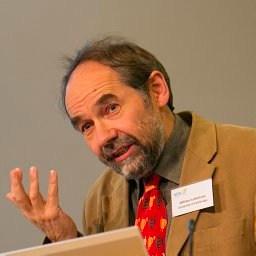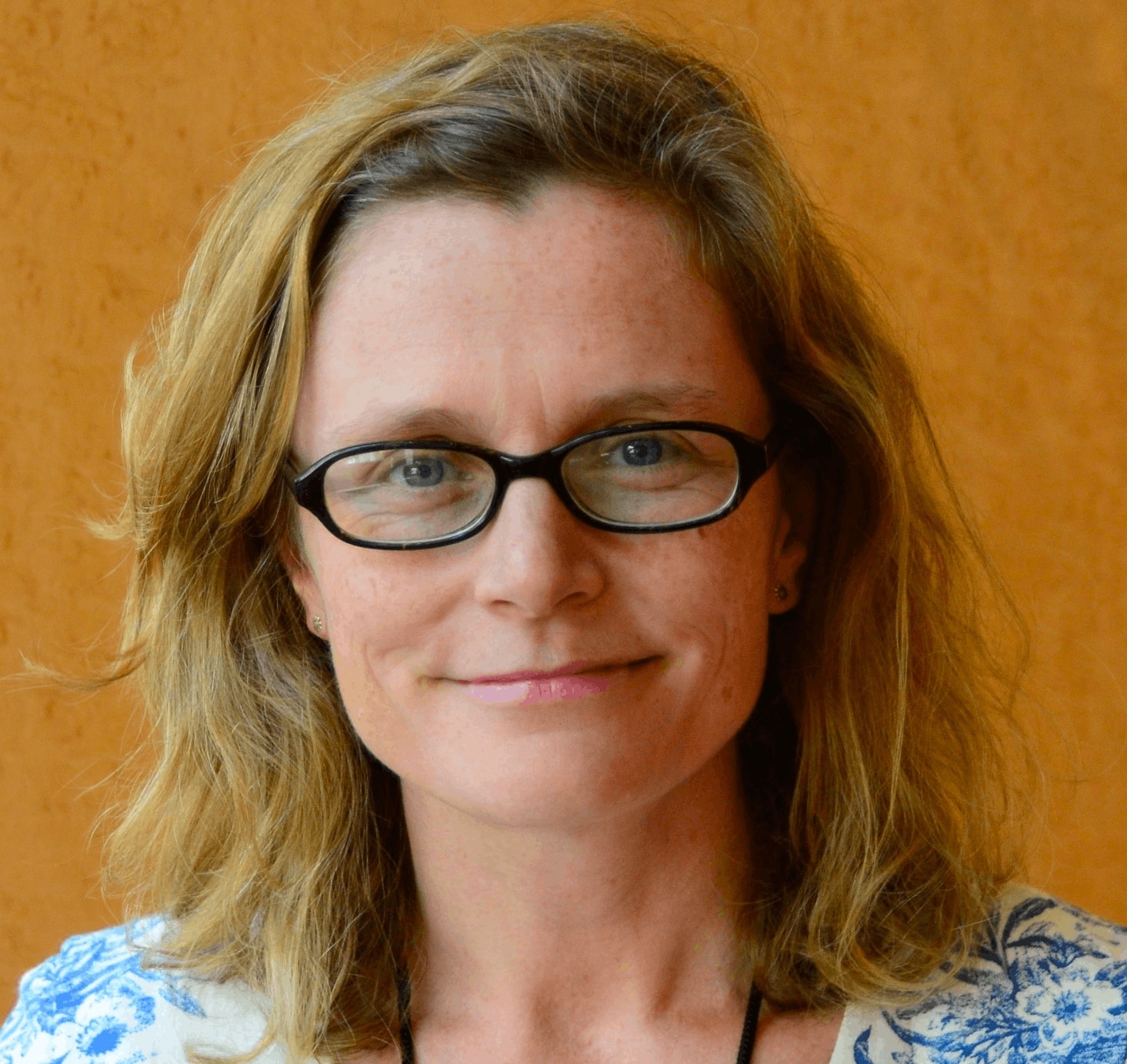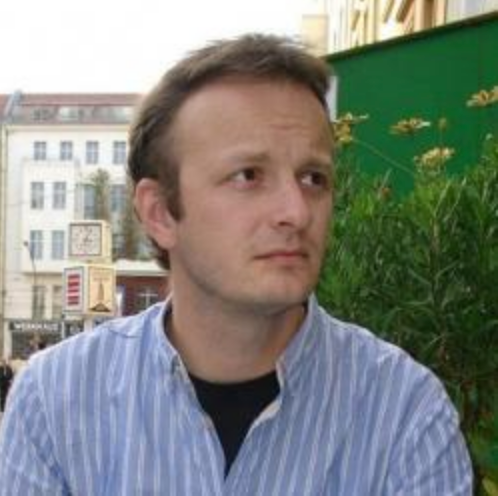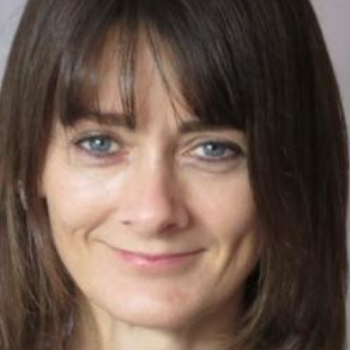Introduction
The following groups of people are, or have been, actively involved in the work of Conservation Evidence. These do not include the Advisory Boards of the synopses, Expert Assessment panels for the evidence collated within synopses, or the editorial board of the online Conservation Evidence Journal.
Contact us at: info@conservationevidence.com

Core team

Prof. William Sutherland CBE FRS
Director of Research and formerly Miriam Rothschild Professor of Conservation Biology, University of Cambridge, established the idea and site and has been heavily involved since. Awarded a CBE in 2021 ‘for services to evidence-based conservation’ and has recently been made a Fellow of the Royal Society for his work on evidence use and been awarded the 2023 ECI Prize in terrestrial ecology.

Dr Rebecca Smith
Conservation Evidence Manager, University of Cambridge. With previous useful experience as an ecological consultant and developing management plans for mammals for organisations including CapeNature, she initially worked with us on systematic reviews (2007-2009). Since 2011 she has worked on the Farmland Synopsis, produced the Amphibian Synopsis, overseen the production of the majority of synopses since and has been the key person on many aspects of the work of Conservation Evidence, including What Works in Conservation.

Prof. Lynn Dicks
University of Cambridge. With a useful background in both ecology and journalism, Lynn has played a key role in establishing many of the main methods such as the synopses and What Works in Conservation. She was the lead author of the Bee Synopsis and the Farmland Synopsis. As a researcher, Lynn works to get Conservation Evidence used in policy making, amongst other research areas.

Dr Silviu Petrovan
University of Cambridge, joined the Conservation Evidence team in 2016. Previous roles include Head of Conservation at Froglife, wetland restoration, captive-breeding projects as a qualified vet and citizen science data harnessing to inform species conservation. He is now a Senior Research Associate, leading expert assessments of interventions, producing evidence-based guidelines, and editing What Works in Conservation. He co-supervises PhD students working on conservation cost-effectiveness, road ecology and conservation action for data deficient species.

Dr Ann Thornton
University of Cambridge, joined the Conservation Evidence team in August 2019. Ann is Managing Editor of our online Conservation Evidence Journal. Ann is also currently working on our marine corals synopsis. Previous experience includes work with JNCC and as an ecological consultant.

Kate Willott, MSc
University of Cambridge, with useful editorial experience, joined the Conservation Evidence team in January 2019. She oversees the collation of evidence in our subject-wide literature database along with other work relating to the running of Conservation Evidence.
Team members currently working on specific projects
-
Dr Tatsuya Amano
University of Queensland (previously University of Cambridge), has been involved in the Conservation Evidence project as a statistical editor. He also runs the translatE project - Transcending Language Barriers to Environmental Sciences - which identifies non-English-language papers that tested the effectiveness of conservation interventions, assesses and compares the scientific knowledge that is available, and aims to understand how language barriers impede the application of science in decision making.
-
Dr Anna Berthinussen
University of Leeds, is one of two main authors of the Bat Synopsis and has produced the annual Bat Synopsis updates, the Marine Mammal Synopsis and helped to produce the Grassland Synopsis. She has also synthesised evidence on the management of invasive plant species as part of the BioRISC project and is currently helping to produce an Anguillid Eel Synopsis.
-
Dr Alec Christie
University of Cambridge (Downing College), joined the Conservation Evidence project as a PhD student in September 2017 and is now an affiliated researcher. In his research fellowship, Alec is working on how to accelerate the evidence synthesis pipeline with AI to ensure Conservation Evidence can keep up with the rapidly growing scientific literature and provide credible information via natural language interfaces. He has also helped to formulate methods and tools to assess different forms of evidence (e.g. the scientific literature and local knowledge) underpinning key assumptions in conservation projects (Balance Evidence Assessment Method) and to transparently document the evidence behind key decisions (Evidence-to-Decision tool).
-
Dr Vanessa Cutts
University of Cambridge, joined the Conservation Evidence team in October 2022. She has worked on the synopsis for the Conservation of Inland Aquatic Vegetation and is now synthesising evidence for the Anguillid Eel synopsis. Working with the Centre for Landscape Regeneration, she organised site visits with local land managers in the Fens to facilitate knowledge sharing about wetland conservation (the Fenland Conservation Network). She has also worked with Wetlands International to create evidence-based guidance related to tidal flat and salt marsh restoration.
-
Dr Will Morgan
University of Cambridge, joined the Conservation Evidence team in April 2020. Will completed the Reptile Synopsis in 2021 and has since been working on developing methods for assessing and compiling evidence from a wide variety of different sources. He has put some of these methods into practice through the Conservation Learning Initiative, working in partnership with the MAVA Foundation and Foundations of Success. Will has previously worked on conservation reintroductions, carrying out a water vole reintroduction in the north east of Scotland.
-
Dr Sam Reynolds
University of Cambridge, joined the Conservation Evidence team in October 2022. He has synthesised evidence on the management of invasive plant species as part of the BioRISC project and is currently helping to produce an Anguillid Eel Synopsis.
-
Dr Nigel Taylor
University of Cambridge, was the lead author of the Peatland Synopsis (2018) and the Marsh and Swamp Synopsis (2021). He is currently working on the Aquatic Vegetation synopsis, and synthesising evidence relevant to UK landscape restoration as part of the Cambridge Centre for Landscape Regeneration (https://www.clr.conservation.cam.ac.uk/). Nigel's previous roles included working with ZSL and with Tour du Valat.
Former team members
-
Dr Har’el Agra
Israel Institute of Technology, is the lead author of the Forest Synopsis.
-
Dr David Aldridge
University of Cambridge, is the lead author of the Control of Freshwater Invasive Species Synopsis and coordinated the assessment of chapters for What Works in Conservation.
-
Stephanie Aldridge
Director of Cambridge Environmental Consulting, UK and contributed to the Control of Freshwater Invasive Species Synopsis.
-
Khatija Alliji
Center for Environment, Fisheries and Aquaculture Science, is an author of the Marine Fish Synopsis.
-
Professor John Altringham
University of Leeds, an international expert on bats oversaw the production of the Bat Synopsis and the chapter in What Works in Conservation.
-
Joscelyne Ashpole
RSPB (previously University of Cambridge), is an author of the Natural Pest Control Synopsis and edited the Farmland Synopsis before publication.
-
Professor Melanie Austen
Plymouth Marine Laboratory, oversaw the production of the Sustainable Aquaculture Synopsis.
-
Professor Richard Bardgett
University of Manchester, oversaw the production of the Soil Fertility Synopsis.
-
Chris Barrett
Center for Environment, Fisheries and Aquaculture Science, is an author of the Marine Fish Synopsis.
-
Dr Sandro Bertolino
University of Turin, oversaw the synopsis of the effectiveness of interventions to control selected invasive mammals.
-
Dr Andrew Bladon
University of Cambridge, joined the Conservation Evidence team in June 2019 following work with the RSPB. Andrew produced the the Butterfly and Moth Synopsis.
Dr Eleanor Bladon
University of Cambridge, joined the Conservation Evidence team in September 2022. Eleanor added evidence to update the Butterfly and Moth Synopsis and worked on the Marine Coral Synopsis.
-
Prof. Amos Bouskila
Ben-Gurion University of the Negev, contributed to the production of the Reptile Synopsis.
Andy Bowkett
Whitley Wildlife Conservation Trust, Paignton Zoo, oversaw the production of the Management of Captive Animals Synopsis.
-
Professor Yohay Carmel
Technion - Israel Institute of Technology, oversaw the production of the Forest Synopsis.
Dr Min Chen
East China Normal University, extracted all the papers that tested interventions from 70 conservation and ecology journals up until 2014. She then coordinated the extraction of papers from Chinese language journals.
-
Matt Child
(previously University of Cambridge) is an author of the Bird Synopsis.
-
Dr Leo Clarke
School of Ocean Sciences, Bangor University, is an author of the Marine Fish Synopsis.
-
Dr Juliana Danhardt
Lund University, is an author of the Farmland Synopsis.
-
Dr Harriet Downey
Woodland Trust (previously University of Cambridge), aimed to understand how people use evidence, and worked with conservation practitioners, policy makers and funders to get evidence more widely used to make conservation decision making more impactful and effective.
Dr Ally Evans
Aberystwyth University, worked on a synopsis of evidence for the effectiveness of biodiversity enhancement on marine artificial structures.
Dr Louise Firth
University of Plymouth, helped to produce the Enhancing the Biodiversity of Marine Artificial Structures Synopsis.
Dr Patrick Grillas
Tour du Valat, oversaw the production of the Peatland and Marsh and Swamp Synopses.
-
Dr Amelia Hood
University of Reading (previously University of Cambridge), worked on a systematic review of scientific evidence for sustainable agriculture (Cassava).
-
James Hutchison
Joint Nature Conservation Committee (previously University of Cambridge) played a significant role in the production of the Natural Pest Control Synopsis.
-
Dr Katy James
Harper Adams University, created the systematic map for the Farmland Synopsis.
-
Aisla Jones
(previously the University of Bangor) lead author of the Sustainable Aquaculture Synopsis.
Coral Jones
Dartmoor Zoo (previously University of Plymouth), is an author of the Management of Captive Animals Synopsis.
-
Annelie Jönsson
Lund University, wrote summaries for the Farmland Synopsis.
-
Dr Jessica Junker
(previously Max Planck Institute for Evolutionary Anthropology) is the lead author of the Primate Synopsis.
-
Professor Michel Kaiser
Heriot Watt University (previously University of Bangor), oversaw the production of the Sustainable Aquaculture Synopsis.
Rodd Kelsey
The Nature Conservancy, oversaw the production of the Mediterranean Farmland Synopsis.
-
Dr Georgina Key
(previously University of Manchester), is the lead author of the Soil Fertility Synopsis. She also coordinated the assessment of the synopsis for the chapter in What Works in Conservation.
Dr Hjalmar Kühl
Max-Planck Institute for Evolutionary Anthropology, is an author of the Primate Synopsis.
-
Dr Anaelle Lemasson
University of Plymouth (previously Joint Nature Conservation Committee, Paignton Zoo) is the lead author of the Subtidal Benthic Invertebrate Synopsis. She then contributed to a systematic map of evidence for the effectiveness of interventions relating to the management of captive animals.
-
Dr Nick Littlewood
Scotland's Rural College (previously University of Cambridge), is an author of the Terrestrial Mammal Synopsis.
-
Sarah Lockhart
(previously Duke University) wrote summaries about carnivores for the Terrestrial Mammal Synopsis.
-
Dr Doug MacFarlane
University of Western Australia & University of Cambridge, is investigating the evidence for behaviour-change interventions that aim to reduce consumer demand for harmful products (e.g. cigarettes, alcohol, or stolen goods). This project is motivated by the need to inform efforts to reduce demand for illegal wildlife products such as elephant ivory, rhino horn, and bear bile..
-
Dr Philip Martin
(previously University of Cambridge), worked on synthesising evidence relating to conservation management, including synthesising evidence on the management of invasive plant species as part of the BioRISC project. He also produced the Shrubland and Heathland Synopsis, and worked on the Grassland and the Mammal synopses. He previously worked for NGOs including IUCN, Birdlife and WCMC.
-
Caitlin McCormack
(previously University of Cambridge) coordinated the assessment of the Natural Pest Control Synopsis and played a role in developing What Works in Conservation.
-
Ros McIntyre
Centre for Environment, Fisheries and Aquaculture Science, is an author of the Marine Fish Synopsis.
-
Dr Angela Mead
contributed to the Control of Freshwater Invasive Species and Sustainable Aquaculture Synopses.
-
Dr Helen Meredith
Institute of Zoology, Zoological Society of London, coordinated the assessment of the Amphibian Synopsis for the chapter in What Works in Conservation.
Dr Pippa Moore
University of Newcastle, oversaw the production of the Enhancing the Biodiversity of Marine Artificial Structures Synopsis.
-
Dr Nibedita Mukherjee
was involved in promoting Conservation Evidence and researching means of making it more widely used.
Prof. Gidi Ne'eman
University of Haifa-Oranim, helped to produce the Forest Synopsis.
-
Dr Nancy Ockendon
(previously University of Cambridge), participated in many aspects of the projects and played a key role in the creation of What Works in Conservation. Nancy was Managing Editor of the journal Conservation Evidence, and contributed towards the Grassland Synopsis.
-
Lisa Orth
Max Planck Institute for Evolutionary Anthropology, wrote summaries for the Primate Synopsis.
-
Dr Laura Pettit
Joint Nature Conservation Committee, is an author of the Subtidal Benthic Invertebrate Synopsis.
-
Professor Stuart Pimm
Duke University, was involved in overseeing and organising the carnivore work for the Terrestrial Mammal Synopsis.
-
Dr Rob Pople
(previously University of Cambridge, Birdlife International) started the Bird Synopsis.
-
Dr Stephanie Prior
(previously University of Cambridge) extracted all the papers that tested interventions from the main conservation and ecology journals up until 2012.
-
Dr Nicola Randall
Harper Adams University, created the systematic map for the Farmland Synopsis.
-
Olivia Richardson
(previously University of Leeds) is one of two main authors of the Bat Synopsis.
-
Rebecca J. Robertson
University of Leeds, summarised evidence for the Mediterranean Farmland Synopsis, conducted literature searches and then as administrator oversaw the collation of evidence in our subject-wide literature database along with other work relating to the running of Conservation Evidence.
-
Dr Ricardo Rocha
(previously University of Cambridge) summarized evidence relating to the control of aquatic invasive plants and worked on the Terrestrial Mammal Synopsis.
-
Dr Guy Rotem
Ben-Gurion University of the Negev, is an author of the Reptile Synopsis.
-
Helen Scales
is an aquatic ecologist, author and researcher for Cambridge Environmental Consulting, UK and contributed to the Control of Freshwater Invasive Species Synopsis.
-
Dr Katie Sainsbury
(previously University of Cambridge) is an author of the Reptile Synopsis and Terrestrial Mammals Synopsis.
-
Rebecca Schoonover
(previously Duke University) wrote summaries about carnivores for the Terrestrial Mammal Synopsis.
-
Dr Gorm Shackelford
(previously University of Cambridge) produced the synopsis on Sustainable Agriculture in California and other Mediterranean climates. He also worked on developing a new website for evidence synthesis and meta-analysis (www.metadataset.com) in collaboration with Conservation Evidence and BioRISC (the Biosecurity Research Initiative at St Catharine’s, www.biorisc.com). This new website focuses on evidence for the effects of management practices on crops and invasive plants.
-
David Showler
(previously University of East Anglia) was involved with Conservation Evidence from the start until 2008. He is now an ecological consultant.
Natasha Taylor
Centre for Environment, Fisheries and Aquaculture Science, worked on an additional section of the Marine Fish Synopsis.
-
Lydia Timbrell
(previously University of Plymouth) is an author of the Management of Captive Animals Synopsis.
-
Dr Elena Tricarico
University of Turin, worked on the synopsis of the effectiveness of interventions to control selected invasive mammals.
-
Susan Turpie
Natural Heritage Management Team, Scottish Government, is an author of the Farmland Synopsis.
-
Dr Elizabeth Tyler
conducted literature searches and as administrator oversaw the collation of evidence in our subject-wide literature database along with other work relating to the running of Conservation Evidence.
-
Dr Jessica Walsh
Simon Fraser University, Canada, was a PhD student at the University of Cambridge who studied how evidence is used in practice, helped teach the Conservation Evidence training course, conducted the preliminary assessment of the Bird Synopsis, and has provided useful advice on implementing evidence-based practice.
-
Dr Maggie Watson
Charles Sturt University, is an author of the Reptile Synopsis.
Dr Tom White
University of Oxford, was a PhD student at the University of Cambridge who investigated the measurement of costs and cost-effectiveness in conservation.
-
Dr Mike Whitfield
University of Lancaster, helped to develop the Soil Fertility Synopsis.
-
Dr Dave Williams
University of Leeds (previously University of Cambridge), wrote the majority of the Bird Synopsis and brought it to completion.
-
Elspeth Wilman
(previously Duke University) wrote summaries about carnivores for the Terrestrial Mammal Synopsis.
-
Dr Hugh Wright
Joint Nature Conservation Committee (previously University of Cambridge), was the lead author of the Natural Pest Control Synopsis.
Fey Young
(previously University of Plymouth) is an author of the Management of Captive Animals Synopsis.
-
Dr Alexandra Zieritz
University of Nottingham, Malaysia Campus, Malaysia, contributed to the Control of Freshwater Invasive Species Synopsis.
-
Dr Erasmus zu Ermgassen
(previously University of Cambridge) volunteered by writing summaries for the Bird Synopsis.
See also
- About Conservation Evidence
- About Studies
- About Actions
- About Synopses
- Advisory Boards
- What Works in Conservation: Assessing the Evidence
- Expert Assessment Panels
- Conservation Evidence Team
- Current Projects and Collaborations
- Funders for Effective Conservation
- Get Involved
- Additional Published Outputs





)_2023.JPG)














